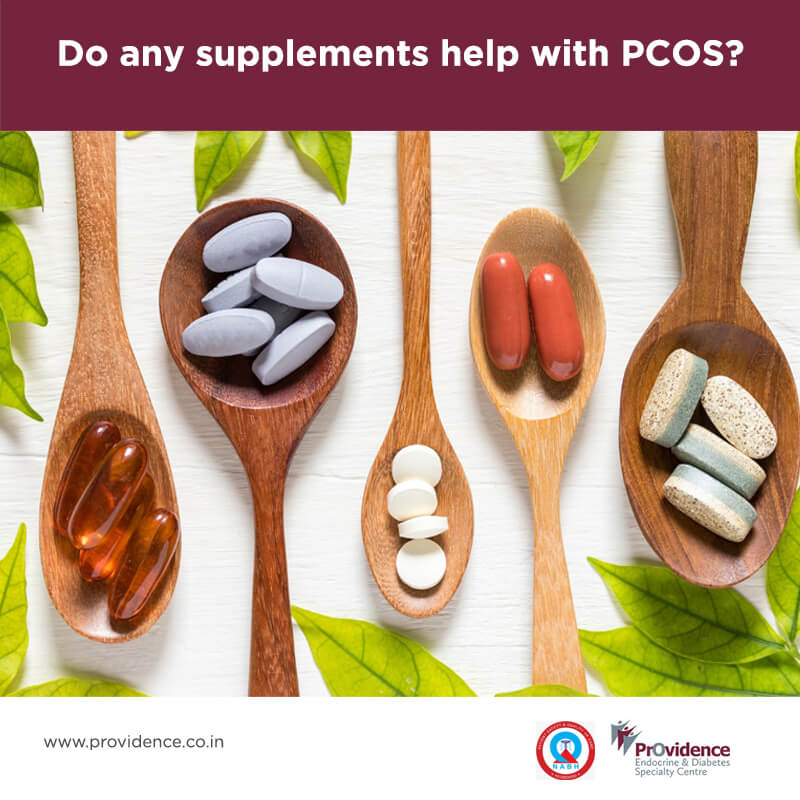The standard treatment of PCOS involves weight loss, diet& lifestyle modifications and medications to attain regular menstrual periods and fertility and avoid the risks associated with PCOS. The traditionally used medications include Metformin or oral contraceptives. Recently, many women suffering from PCOS have been seeking alternative treatment options, including natural molecules and complementary medicines. Certain nutritional supplements, like curcumin, vitamin D & inositol, have been proven effective in patients with PCOS. Let us understand if they are scientifically sound:
A) Inositol is a natural sugar. Myo-inositol is the most common form in nuts, grains, beans and fruit. Myo-inositol can reduce insulin resistance and male hormone levels in women with PCOS. The latest studies with Myo-inositol show a definite effect on improving insulin sensitivity and ovulation. However, the effect is inferior to the current standards for treatment, such as Metformin.
B) Curcumin: is a natural polyphenol. Multiple small studies using curcumin show reduced inflammation and minor improvement in blood glucose and insulin levels. No definite benefits for periods or fertility have been found.
C) Vitamin D may improve markers of inflammation and glucose levels. It can be used if the person has Vitamin D deficiency.
D) CoQ: coenzyme Q is a natural antioxidant. It reduces the markers of inflammation but has no significant effect on menstrual periods or fertility.
E) Omega 3 /fish oils: minor effects in improving insulin resistance in PCOS. There are no definitive studies with important outcomes.
F) Others: supplements like N acetylcysteine, berberine, Zn and magnesium are not helpful.
In summary, you can consider using myoinositol or vitamin D (if there is a deficiency). Still, other supplements have limited scientific evidence to support their use. Since these supplements can interfere with other medicines you consume or diseases you have, consult with your endocrinologist before you consume them.
Dr. Tittu Oommen MD, DM



